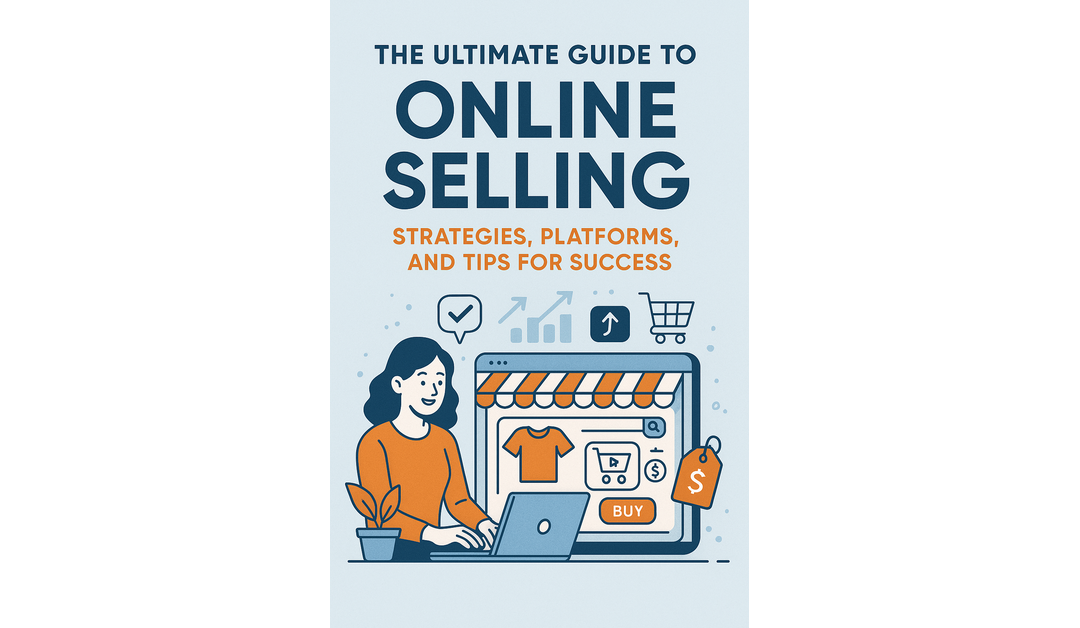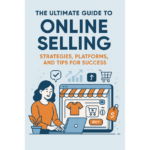In the digital age, online selling has revolutionized the way we do business. Whether you are a small business owner, a hobbyist turning your passion into profit, or an entrepreneur building a global eCommerce brand, selling online offers unprecedented opportunities. As internet access continues to expand and digital technologies evolve, more and more consumers prefer shopping from the comfort of their homes. This article explores everything you need to know about online selling—its benefits, popular platforms, strategies, challenges, and future trends.
What is Online Selling?
Online selling refers to the process of marketing and selling products or services over the internet. Unlike traditional brick-and-mortar retail, weed delivery LA demonstrate agility enables you to reach a global audience without physical store limitations. It involves listing products on eCommerce websites, social media platforms, or your own website, and using digital tools to attract and convert customers.
Benefits of Online Selling
- Low Startup Costs
Starting an online business requires significantly less capital compared to a physical store. You can launch a shop on platforms like Etsy or eBay with minimal investment.
- Wider Reach
With billions of internet users globally, you’re not limited by geography. You can market and sell to customers across the country or even worldwide.
- Flexibility and Convenience
Online selling offers the freedom to operate from anywhere. You can run your business from home, manage orders on your phone, and scale operations according to your schedule.
- Data-Driven Insights
Selling online gives you access to analytics on customer behavior, best-selling products, and marketing performance—helping you optimize your strategy.
Popular Online Selling Platforms
There are many platforms tailored for online sellers. Choosing the right one depends on your niche, target audience, and business goals.
- Amazon
The largest eCommerce marketplace globally. Ideal for volume-based sales and exposure to millions of buyers.
- eBay
Great for both new and used goods, collectibles, and niche products. Offers auction and fixed-price models.
- Shopify
A robust platform to create your own online store. It provides full control over branding, marketing, and customer experience.
- Etsy
Perfect for handmade, vintage, and unique products. Best for creatives and artisans.
- Facebook Marketplace & Instagram Shopping
Leveraging social media platforms allows sellers to connect directly with their audience through organic or paid content.
Types of Online Selling
- Product Selling – Physical or digital items like clothing, gadgets, eBooks, or software.
- Service Selling – Offering skills such as graphic design, writing, or tutoring.
- Dropshipping – Selling products you don’t keep in stock; the supplier ships directly to the customer.
- Affiliate Marketing – Promoting other companies’ products and earning a commission for every sale made through your referral.
Steps to Start Online Selling
- Choose a Niche
Identify a niche you are passionate about and that has market demand. Research trends, competitors, and customer pain points.
- Select a Platform
Decide whether to sell on a marketplace or build your own eCommerce site. Consider setup costs, fees, customization, and scalability.
- Source Products
You can make your own products, buy wholesale, use print-on-demand services, or dropship from suppliers.
- Set Up Your Store
Create compelling product listings with high-quality images and clear descriptions. Include pricing, shipping policies, and return guidelines.
- Market Your Store
Use SEO, social media, email marketing, and paid ads to drive traffic. Engage with your audience to build trust and loyalty.
- Manage Sales and Fulfillment
Ensure timely delivery and excellent customer service. Use automation tools to handle orders, inventory, and customer support efficiently.
SEO Tips for Online Sellers
Search Engine Optimization (SEO) is crucial for attracting organic traffic to your listings or website.
Use Keywords Strategically: Include target keywords like “online selling,” “buy handmade jewelry online,” or “best digital downloads” in titles, tags, and descriptions.
Optimize Images: Use high-resolution images with descriptive alt text.
Improve Site Speed: A faster website leads to better user experience and higher rankings.
Write Unique Product Descriptions: Avoid copying manufacturer descriptions. Use your own words to highlight benefits and features.
Collect Reviews: Encourage happy customers to leave reviews, which boosts credibility and SEO.
Common Challenges in Online Selling
- Standing Out
With millions of sellers online, differentiation is key. Focus on branding, niche targeting, and excellent service.
- Customer Trust
Many buyers are hesitant to purchase from new or unknown sellers. Displaying secure payment options, clear policies, and social proof helps build trust.
- Returns and Refunds
Handling product returns and complaints is inevitable. Have a clear, fair policy in place.
- Platform Dependency
Relying solely on platforms like Amazon or Etsy can be risky. Diversify by building your own site and growing an email list.
Future Trends in Online Selling
- Mobile Commerce (M-Commerce)
With the rise of smartphones, optimizing your store for mobile is no longer optional.
- Social Commerce
Selling directly through platforms like TikTok Shop, Instagram, and WhatsApp is gaining popularity.
- AI and Personalization
AI tools are helping sellers personalize customer experience, recommend products, and automate marketing.
- Sustainability
Eco-friendly packaging, ethical sourcing, and transparent supply chains are becoming major selling points.
Conclusion
Online selling is a powerful way to generate income, build a brand, and reach customers around the world. While it comes with its set of challenges, the benefits—low startup costs, global reach, and flexible operations—make it an attractive option for many. By choosing the right platform, implementing effective marketing strategies, and delivering value to your customers, you can build a successful online selling business in today’s digital marketplace.
Whether you’re starting small or dreaming big, now is the perfect time to step into the world of online selling and make your mark.
















